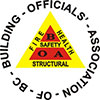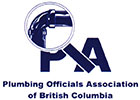Course Outline and Learning Outcomes:
Module 1: Introduction to the Building Regulatory System
In this module you will learn why there is a building regulatory system, the major acts and regulations that affect the building industry, and the roles and responsibilities of each level of government.
In this module you will learn why there is a building regulatory system, the major acts and regulations that affect the building industry, and the roles and responsibilities of each level of government.
Module 2: Building Codes
In this module you will learn about how building codes are created in Canada and in British Columbia, and the applicability of these in the Province. You will learn about BC’s unique energy step code. You will learn about the code change cycle, where to access the codes, how to learn about the codes, and mid-cycle code revisions.
In this module you will learn about how building codes are created in Canada and in British Columbia, and the applicability of these in the Province. You will learn about BC’s unique energy step code. You will learn about the code change cycle, where to access the codes, how to learn about the codes, and mid-cycle code revisions.
Module 3: How Bylaws and Codes are Enforced
In this module you will learn more about the roles and responsibilities of local governments, and how municipalities and regional districts differ, and the various ways that B.C.’s Indigenous communities regulate building and construction. You will learn about the two most important bylaws in a local government’s regulatory system: the Building Bylaw and the Zoning Bylaw.
In this module you will learn more about the roles and responsibilities of local governments, and how municipalities and regional districts differ, and the various ways that B.C.’s Indigenous communities regulate building and construction. You will learn about the two most important bylaws in a local government’s regulatory system: the Building Bylaw and the Zoning Bylaw.
Module 4: Life Cycle of a Building Permit
In this module you learn about the generic pathway a building permit might travel through the local government’s permitting system in order for to receive the proper permissions for construction or renovation to begin. You will learn about the other bylaws that affect what and how buildings or alterations are approved.
In this module you learn about the generic pathway a building permit might travel through the local government’s permitting system in order for to receive the proper permissions for construction or renovation to begin. You will learn about the other bylaws that affect what and how buildings or alterations are approved.
Module 5: Working as a Building or Plumbing Official
In this module you will learn about the qualification program for building officials, how there is a regulation that defines a scope of work for the various classes of building officials, and will begin to define the tasks that a building official will perform when doing his or her work for local authority
In this module you will learn about the qualification program for building officials, how there is a regulation that defines a scope of work for the various classes of building officials, and will begin to define the tasks that a building official will perform when doing his or her work for local authority
Module 6: Plan Examination and Permitting
In this module you will learn in greater detail about the initial stages of a building or plumbing official’s work, including plan checking and the permitting process.
In this module you will learn in greater detail about the initial stages of a building or plumbing official’s work, including plan checking and the permitting process.
Module 7: Site Visits and Occupancy Permit
In this module you will learn in greater detail about the later stages of a building or plumbing official’s work, including mid-construction and issuing occupancy permits.
In this module you will learn in greater detail about the later stages of a building or plumbing official’s work, including mid-construction and issuing occupancy permits.
Module 8: Advanced Methods of Code Enforcement
In this module you will learn about the more advanced methods to interpret and enforce the building code. This will include the use of Letters of Assurance and alternative solutions, and how and when both of those can be used. You will also learn about the mechanisms that exist to help during code interpretation.
In this module you will learn about the more advanced methods to interpret and enforce the building code. This will include the use of Letters of Assurance and alternative solutions, and how and when both of those can be used. You will also learn about the mechanisms that exist to help during code interpretation.
Module 9: Legal and Ethical Considerations for Building Officials
In this module you will learn about the code of ethics and code of professional standards for building officials, as well as the legal term duty of care. You will learn about the importance of certain practices and how these are essential to protecting the building’s future occupants, the structure itself, the building official, and the local government.
In this module you will learn about the code of ethics and code of professional standards for building officials, as well as the legal term duty of care. You will learn about the importance of certain practices and how these are essential to protecting the building’s future occupants, the structure itself, the building official, and the local government.
Module 10: Insurance and Liability
In this module you will learn about the basics of insurance and liability as they relate to the building industry. This will cover requirements for owners, builders, building officials, local governments, and architects and engineers. The New Home Warranty program will also be covered.
In this module you will learn about the basics of insurance and liability as they relate to the building industry. This will cover requirements for owners, builders, building officials, local governments, and architects and engineers. The New Home Warranty program will also be covered.


